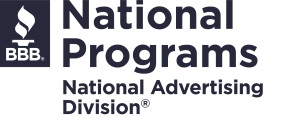
New York, NY – February 27, 2023 – The National Advertising Division (NAD) of BBB National Programs recommended that Pier 1 Imports Online, Inc., a global importer of decorative home furnishings and gifts that owns and operates the e-commerce website www.pier1.com, clearly and conspicuously disclose the material terms of the Pier 1 Rewards customer loyalty program at the time a consumer adds an item to their cart.
Pier 1 offers Pier 1 Rewards, a subscription-based customer loyalty program for $9.99 that is available to US residents only. The Pier 1 Rewards provides a 10 percent discount on purchases with free shipping included billed on a monthly or annual basis.
When a consumer added an item to their cart, Pier 1 Rewards was automatically added to their cart as a pre-checked button that appeared immediately next to the Pier 1 Rewards logo. The price of the product with the 10 percent discount appeared below the item. Details about the Pier 1 Rewards membership program appeared below the pre-checked box. A consumer had to affirmatively uncheck the pre-checked button to remove the Pier 1 Rewards membership that was added to the cart and not incur the additional membership fee.
Through its routine monitoring program, NAD challenged the accuracy of a listed product price where the advertiser automatically added a Pier 1 Rewards Membership of $9.99/month to the customer’s purchase at checkout. At issue for NAD was whether advertising a reduced price for a product is misleading if it reflects a 10 percent discount that was only available with a subscription to Pier 1 Rewards and whether the material terms and conditions of the Pier 1 Rewards subscription were clearly and conspicuously disclosed before the consumer made a purchase decision.
NAD found that one of the material terms of the rewards program – namely, the autorenewal nature of the Pier 1 Rewards subscription and how to cancel it – was not displayed when the consumer saw the discounted price in their cart.
NAD noted that adding an item to a shopping cart without the consumer affirmatively consenting to purchase the item can be problematic particularly where, as here, the material terms related to the purchase of the item (autorenewal membership and cancelation) were not disclosed when the item was added to the cart.
For these reasons, NAD recommended that Pier 1 clearly and conspicuously disclose the material terms of Pier 1 Rewards at the time the item is added to a cart.
In its advertiser statement, Pier 1 stated that it “agrees to comply with NAD’s recommendation” although it “respectfully disagrees with NAD’s analysis and conclusion” regarding its discount price advertising. The advertiser further stated that “for reasons independent of NAD’s inquiry, Pier 1, even prior to receiving NAD’s decision, modified its advertising in ways that effectively address NAD’s concerns.”
All BBB National Programs case decision summaries can be found in the case decision library. For the full text of NAD, NARB, and CARU decisions, subscribe to the online archive.
About BBB National Programs: BBB National Programs, a non-profit organization, is the home of U.S. independent industry self-regulation, currently operating more than a dozen globally recognized programs that have been helping enhance consumer trust in business for more than 50 years. These programs provide third-party accountability and dispute resolution services that address existing and emerging industry issues, create a fairer playing field for businesses, and a better experience for consumers. BBB National Programs continues to evolve its work and grow its impact by providing business guidance and fostering best practices in arenas such as advertising, child-and-teen-directed marketing, data privacy, dispute resolution, automobile warranty, technology, and emerging areas. To learn more, visit bbbprograms.org.
About the National Advertising Division: The National Advertising Division (NAD) of BBB National Programs provides independent self-regulation and dispute resolution services, guiding the truthfulness of advertising across the U.S. NAD reviews national advertising in all media and its decisions set consistent standards for advertising truth and accuracy, delivering meaningful protection to consumers and leveling the playing field for business.
Contact Information
Name: Abby Hills
Email: press@bbbnp.org
Job Title: Director of Communications
Molson Coors Appeals National Advertising Division Recommendation to Discontinue “Light Beer Shouldn’t Taste Like Water” Claim
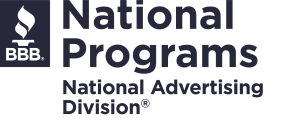
New York, NY – February 23, 2023 – In a Fast-Track SWIFT challenge brought by Anheuser-Busch Companies LLC, the National Advertising Division (NAD) of BBB National Programs recommended that Molson Coors Beverage Company discontinue the claim that “light beer shouldn’t taste like water. It should taste like beer.”
Fast-Track SWIFT is an expedited challenge process designed for single-issue advertising cases brought to NAD. Anheuser-Busch challenged Molson Coors’s claim that “light beer shouldn’t taste like water. It should taste like beer” in advertising promoting Miller Lite.
In this challenge, NAD determined that, in context, “light beer shouldn’t taste like water. It should taste like beer” is not puffery or a mere opinion. Although no specific competing light beer is identified by name in the challenged videos, NAD determined that tasting “like water” is a measurable attribute. Reliable sensory testing could demonstrate whether consumers detect a watery taste or the complete absence of taste. Consumers may also reasonably expect that the statement is supported by such evidence.
Because Molson Coors did not submit evidence supporting the claim that any other light beers “taste like water,” NAD recommended that the claim be discontinued.
NAD noted that nothing in its decision precludes Molson Coors from making other truthful and not misleading claims relating to consumers’ taste preferences or other claims pertaining to the taste qualities of its beers or competing beers.
NAD determined that the Anheuser-Busch challenge was appropriate for Fast-Track SWIFT because it presented the single issue as to whether the challenged claim was misleading.
In its advertiser statement, Molson Coors stated that it “disagrees with the decision and recommendation of the National Advertising Division and will appeal the decision to the National Advertising Review Board” based on its belief that “the ads do not expressly identify Michelob Ultra or any other light beers” and it should not be precluded from publicly sharing its “opinion” that light beer should not taste like water.
Appeals of NAD decisions are made to BBB National Programs’ National Advertising Review Board (NARB), the appellate-level truth-in-advertising body of BBB National Programs.
All BBB National Programs case decision summaries can be found in the case decision library. For the full text of NAD, NARB, and CARU decisions, subscribe to the online archive.
About BBB National Programs: BBB National Programs, a non-profit organization, is the home of U.S. independent industry self-regulation, currently operating more than a dozen globally recognized programs that have been helping enhance consumer trust in business for more than 50 years. These programs provide third-party accountability and dispute resolution services that address existing and emerging industry issues, create a fairer playing field for businesses, and a better experience for consumers. BBB National Programs continues to evolve its work and grow its impact by providing business guidance and fostering best practices in arenas such as advertising, child-and-teen-directed marketing, data privacy, dispute resolution, automobile warranty, technology, and emerging areas. To learn more, visit bbbprograms.org.
About the National Advertising Division: The National Advertising Division (NAD) of BBB National Programs provides independent self-regulation and dispute resolution services, guiding the truthfulness of advertising across the U.S. NAD reviews national advertising in all media and its decisions set consistent standards for advertising truth and accuracy, delivering meaningful protection to consumers and leveling the playing field for business.
Contact Information
Name: Abby Hills
Email: press@bbbnp.org
Job Title: Director of Communications
Azienda tecnologica di Chicago annuncia il lancio di un’app per l’automazione dell’importazione di prodotti alimentari negli USA

Chicago, Illinois: RudiCoder LLC, azienda di logistica per l’e-commerce di Chicago, è lieta di annunciare il lancio di PriorNotify, la prima applicazione basata sul cloud per l’automazione della procedura di notifica di preavviso, chiamata “Prior Notice”, che è richiesta dalla Food and Drug Administration (FDA) americana per la vendita e la spedizione di generi alimentari e bevande a clienti negli Stati Uniti.
“PriorNotify è rivoluzionaria”, ha dichiarato Holly Urban, AD e co-fondatrice di RudiCoder. “Chi vende cibi e bevande non americani a clienti negli USA, sa quant’è complesso e quanto tempo richieda espletare la procedura obbligatoria di Prior Notice della FDA. Grazie a PriorNotify di RudiCoder, la procedura viene semplificata e automatizzata, permettendo di completare l’operazione in pochi secondi”, ha spiegato Urban.
PriorNotify è stata progettata per i produttori di generi alimentari e bevande, ma anche per i rivenditori, i distributori, gli spedizionieri e chiunque fornisca servizi di evasione ordini e trasporto. Le aziende internazionali potranno ora vendere e inviare con estrema facilità prodotti alimentari a rivenditori, distributori e consumatori negli Stati Uniti.
PriorNotify offre un’integrazione perfetta con Shopify, WordPress (WooCommerce), Magento e altre diffuse piattaforme di e-commerce, generando automaticamente le notifiche di Prior Notice richieste dalla Food and Drug Administration non appena il prodotto viene acquistato.
L’app funziona inoltre in modo molto semplice con qualsiasi sistema di gestione degli ordini, oltre che con marketplace online come Amazon. Le informazioni relative agli ordini possono essere facilmente caricate al suo interno, permettendo ai rivenditori di grossi volumi di operare in modo rapido ed efficiente.
PriorNotify è stata progettata per l’e-commerce e permette a produttori internazionali, aziende di trasporto e spedizione, dropshipper e altri esercenti di collaborare in modo efficace.
Ad esempio, i produttori di alimenti e bevande possono ottenere automaticamente le Prior Notice per la FDA non appena i prodotti vengono acquistati dalle aziende che rivendono i loro prodotti. Similmente, PriorNotify permette ai dropshipper di inviare notifiche automatiche ai produttori, fornendo le Prior Notice non appena i prodotti vengono acquistati. PriorNotify permette anche alle aziende di trasporto e spedizione di ottenere automaticamente le Prior Notice per la FDA non appena i prodotti vengono acquistati dai loro clienti.
Inoltre, PriorNotify permette di creare in tutta semplicità delle fatture commerciali. Infine, tutte le pagine dell’app PriorNotify possono venire tradotte automaticamente in decine di lingue diverse.
“PriorNotify permette alle aziende di aumentare progressivamente le loro offerte di prodotti, ampliare le loro vendite e la base dei loro clienti negli Stati Uniti, riducendo considerevolmente le spese generali del processo”, ha aggiunto Urban.
Il prezzo proposto è molto competitivo, con sconti che permettono di arrivare fino a soli 0,10 $ per Prior Notice, senza tariffe di attivazione, minimi forfettari mensili, costi di utilizzo per utente e addebiti extra per assortimenti predefiniti di prodotti. Sono inoltre disponibili versioni di prova gratuite di PriorNotify.
RudiCoder LLC è un’azienda di automazione dell’e-commerce specializzata nel settore alimentare e delle bevande, con sede a Chicago, Illinois, negli Stati Uniti. Per ulteriori informazioni su RudiCoder, visitare RudiCoder.com e, per saperne di più su PriorNotify, visitare PriorNotify.com.
Contact Information
Name: Holly Urban
Email: hurban@incubatorllc.com
Job Title: CEO
Verizon Appeals National Advertising Division Recommendation to Discontinue “You Need a Better Network” Claim for its Wireless Service
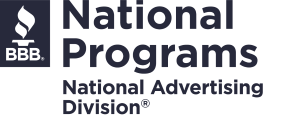
New York, NY – February 22, 2023 – In a challenge brought by AT&T Services, Inc., the National Advertising Division (NAD) of BBB National Programs recommended that Verizon Communications, Inc. discontinue the claim “you need a better network,” as well as several implied claims, used in connection with its wireless service.
The challenged claims appear in a thirty-second holiday-themed commercial promoting Verizon’s wireless network and includes well-known actors Paul Giamatti, as the Dickens character Scrooge, and Cecily Strong. In the commercial Giamatti as Scrooge holds up his mobile phone, scowls, and complains that he can “barely get reception…” In response, Strong recommends that he “need[s] a better network. Tis the season to switch to Verizon.”
At issue for NAD was whether the claim “You need a better network” in the context of the commercial conveys an objective claim that requires substantiation or whether it falls into the realm of puffery. NAD found that although the commercial includes elements that are fanciful, it also conveys an objective comparative superiority message that Verizon’s network is better than its competitors, which requires substantiation. Because there was no support for this claim, NAD recommended that it be discontinued.
Further, NAD determined that use of the term “better” in the context of the commercial is expressly comparative because it links “better” to the specific performance attribute of cell phone reception.
In the absence of support for Verizon’s claim that it offers better reception than its competitors, NAD recommended Verizon modify the advertising to avoid conveying the implied messages that Verizon provides customers with superior reception, that Verizon has a “better network” than its competitors, and that Verizon offers superior reception due to its “better network”.
In its advertiser statement, Verizon stated that it “will appeal NAD’s decision in its entirety” based on its belief that the “challenged claim does not reference AT&T or any other carriers and was nothing more than a playful, spendthrift-themed vignette that builds up to Verizon’s ‘Free 5G Phone’ offer.”
Appeals of NAD decisions are made to BBB National Programs’ National Advertising Review Board (NARB), the appellate-level truth-in-advertising body of BBB National Programs.
All BBB National Programs case decision summaries can be found in the case decision library. For the full text of NAD, NARB, and CARU decisions, subscribe to the online archive.
About BBB National Programs: BBB National Programs, a non-profit organization, is the home of U.S. independent industry self-regulation, currently operating more than a dozen globally recognized programs that have been helping enhance consumer trust in business for more than 50 years. These programs provide third-party accountability and dispute resolution services that address existing and emerging industry issues, create a fairer playing field for businesses, and a better experience for consumers. BBB National Programs continues to evolve its work and grow its impact by providing business guidance and fostering best practices in arenas such as advertising, child-and-teen-directed marketing, data privacy, dispute resolution, automobile warranty, technology, and emerging areas. To learn more, visit bbbprograms.org.
About the National Advertising Division: The National Advertising Division (NAD) of BBB National Programs provides independent self-regulation and dispute resolution services, guiding the truthfulness of advertising across the U.S. NAD reviews national advertising in all media and its decisions set consistent standards for advertising truth and accuracy, delivering meaningful protection to consumers and leveling the playing field for business.
Contact Information
Name: Abby Hills
Email: press@bbbnp.org
Job Title: Director of Communications
National Advertising Division Finds Certain Claims for One Health Certified Poultry Products Supported; Others Found Unsubstantiated; One Health Appeals
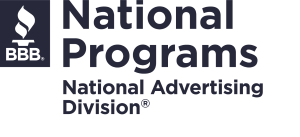
New York, NY – February 21, 2023 – The National Advertising Division (NAD) of BBB National Programs determined that One Health Certification Foundation (OHC), an Iowa non-profit responsible for the One Health Certified standard, provided a reasonable basis for certain advertising claims related to its certification of poultry products.
NAD also concluded that the name “One Health” did not require modification, and found that OHC provided a reasonable basis to support certain claims regarding antibiotic use.
NAD recommended that OHC discontinue:
- General animal welfare claims and avoid conveying the message that its certification program exceeds industry standards.
- Superlative claims asserting that OHC is the best with respect to animal welfare.
- Claims promoting OHC’s holistic approach to certification.
- Claim that “prompt treatment of sick animals is required.”
- “Antibiotic restrictions” and “responsible antibiotic use” claims as well as the implied claim that OHC-certified producers use antibiotics more judiciously than the industry standard and significantly exceed industry antibiotic use standards.
- Environmental benefit claims.
These claims were challenged by The America Society for the Prevention of Cruelty to Animals, a non-profit corporation, and the Antibiotic Resistance Action Center, an academic organization housed in the Milken Institute School of Public Health at George Washington University.
Impartial Claims
In assessing whether the OHC certification was independent, NAD considered whether OHC’s standards were developed by industry stakeholders, as well as any connections between OHC’s leadership and the meat industry.
NAD concluded that there was no evidence in the record that the standards creation process is dominated or controlled by industry actors and concluded that the OHC certification was independent.
One Health Claims
NAD considered whether consumers are likely to confuse the advertiser’s One Health Certified name with the One Health Initiative, a collaborative approach adopted by entities such as the Centers for Disease Control and Prevention, the American Medical Association, and the World Health Organization to address concerns such as zoonotic diseases (infections that spread
between people and animals), antimicrobial resistance, food safety and environmental contamination.
Based on the plain language of the name “One Health,” NAD concluded that the name did not convey an expressly false message of association with any organization or principles, or, for that matter, any provable claim at all. Given the lack of evidence of consumer confusion and NAD’s conclusion that “One Health” was not an expressly false claim, NAD concluded that the name One Health did not require modification.
Animal Welfare Claims
- General animal welfare claims:
- The challenger took issue with OHC’s general animal welfare claims of “Responsible Animal Care,” and others, including for example that OHC “enables farmers and producers to prioritize animal health and welfare while working toward safe, responsible, and transparent animal care.”
- NAD found that these claims, which appear in the context of a certification program, convey a message that certified products have met higher animal welfare standards compared to the rest of the industry.
- In the absence of evidence that OHC’s standards are superior to industry standards, NAD recommended that the claims be discontinued and that OHC avoid conveying the message that its certification program exceeds industry standards.
- Superlative claims:
- Because OHC provided no evidence that its animal welfare standards meet or exceed the highest industry standards for animal care or that its approach is optimal, NAD recommended that it discontinue animal welfare superlative claims including “Consumer facing companies will be seen as leaders in assuring that animals raised in their supply chain are raised using responsible animal care practices.”
- Specific practice claims:
- NAD also considered whether OHC’s specific animal welfare claims reasonably convey the message that certain practices are not allowed by OHC standards, including, for example that OHC chickens and turkeys are not raised in overcrowded, unsanitary, and disease-ridden facilities.
- NAD found that the advertising does not convey a specific message as to whether any of the alleged practices are allowed. Rather, NAD found that the seal clearly identifies OHC as the certifying organization and that animal welfare (along with four other metrics) are the subject of the certification. In this context, NAD found that consumers likely would not take away a message about specific practices that are allowed by OHC.
- Holistic claims:
- NAD determined that OHC’s claims promoting a holistic approach to certification (“Producers are committed to the betterment of human, animal, and environmental health,” and “The health of humans, animals & the environment are inseparable”), in context, convey an objective message that the OHC certification program has high standards in each of these three areas.
- Having found that certain claims regarding animal welfare and, as discussed below, antibiotic resistance and environmental health are unsubstantiated, NAD found that these holistic claims are similarly unsupported and recommended they be discontinued.
- Animal-based claims:
- OHC calls its program the “only comprehensive, animal-based PVP [process verified] certification program” and claims that its program is for producers to market “animal-based products.”
- NAD concluded that, in context, the claim identifies that the certification is for animals in agriculture, such as chickens and turkeys and, in the future, other animals. Therefore, NAD determined that the claim is literally true and does not convey a message about superior animal care.
- “Prompt treatment of sick animals is required”:
- Because OHC’s standards do not require the prompt treatment of sick animals, but rather, define mortality thresholds at which treatment is required, this claim is not supported so NAD recommended that it be discontinued.
Antibiotic Use Claims
NAD determined that OHC provided a reasonable basis to support the claim that medically important antibiotics are only given when medically necessary and that OHC-certified producers attempt to minimize the number of animals treated with antibiotics.
Further, NAD determined that the claim “Antibiotic use is important,” which appears as part of the header “Why Antibiotic Use Is Important” on the advertiser’s website, does not convey a misleading message because it summarizes the contents of the paragraph below it on antibiotic-resistant bacteria and the need for responsible antibiotic use.
However, NAD determined that one message reasonably conveyed by claims of “antibiotic restrictions” is that OHC-certified poultry have met a higher standard than the prevailing industry practice. Because this message was not supported, NAD recommended that the claims be discontinued as well as the implied claims that OHC-certified producers use antibiotics more judiciously than the industry standard and significantly exceed industry antibiotic use standards.
Environmental Benefit Claims
OHC claims that it “supports environmental stewardship classes in order to minimize the impact of animal production on the environment,” and one of the five core principles on the advertiser’s website as well as its certification label relates to the “environmental impact” of its program. NAD determined that the claims were not supported and recommended that they be discontinued.
In its advertiser statement, OHC stated that it “will appeal NAD’s decisions regarding its antibiotic, animal welfare, and environmental claims” and noted that it “appreciates NAD’s time and attention to this matter.” The advertiser further stated that “consistent with OHC’s promised and agreed-upon approach to revisit standards every three years, OHC will be revisiting its standards to ensure its label remains accurate.”
Appeals of NAD decisions are made to BBB National Programs’ National Advertising Review Board (NARB), the appellate-level truth-in-advertising body of BBB National Programs.
All BBB National Programs case decision summaries can be found in the case decision library. For the full text of NAD, NARB, and CARU decisions, subscribe to the online archive.
About BBB National Programs: BBB National Programs, a non-profit organization, is the home of U.S. independent industry self-regulation, currently operating more than a dozen globally recognized programs that have been helping enhance consumer trust in business for more than 50 years. These programs provide third-party accountability and dispute resolution services that address existing and emerging industry issues, create a fairer playing field for businesses, and a better experience for consumers. BBB National Programs continues to evolve its work and grow its impact by providing business guidance and fostering best practices in arenas such as advertising, child-and-teen-directed marketing, data privacy, dispute resolution, automobile warranty, technology, and emerging areas. To learn more, visit bbbprograms.org.
About the National Advertising Division: The National Advertising Division (NAD) of BBB National Programs provides independent self-regulation and dispute resolution services, guiding the truthfulness of advertising across the U.S. NAD reviews national advertising in all media and its decisions set consistent standards for advertising truth and accuracy, delivering meaningful protection to consumers and leveling the playing field for business.
Contact Information
Name: Abby Hills
Email: press@bbbnp.org
Job Title: Director of Communications
National Advertising Division Recommends Oral Essentials Discontinue Certain Comparative Claims for Lumineux Whitening Strips and Pen
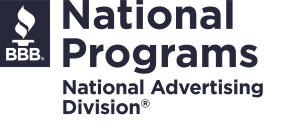
New York, NY – February 16, 2023 – The National Advertising Division (NAD) of BBB National Programs recommended that Oral Essentials, Inc. discontinue claims that its Lumineux Whitening Strips and Pen are “clinically proven to whiten teeth as well as the leading brand” and that it does so “without the harm associated with bleaches.” NAD was acting on a challenge brought by the Procter & Gamble Company (P&G).
Both parties market and sell teeth whitening strips and pens: Oral Essentials under its Lumineux brand and P&G under its Crest and ARC brands. P&G’s challenge focused on Lumineux marketing, which sought to highlight a key point of differentiation between the whitening products – that P&G’s products use hydrogen peroxide as the tooth bleaching agent, whereas Oral Essentials’ products do not.
Whitening Claim
NAD found that the claim that the Lumineux product is “clinically proven to whiten teeth as well as the leading brand” conveys the comparative message that Lumineux whitening strips whiten teeth as well as Crest Whitestrips, and that the Lumineux whitening pen whitens teeth as well as the leading whitening pen brand, and that this parity of product efficacy is clinically proven.
NAD noted that Oral Essentials has made substantial investments in over 60 clinical and laboratory studies in support of its products, and after reviewing the evidence NAD concluded that the clinically proven claim was not substantiated and recommended that it be discontinued.
NAD noted that nothing in its decision precludes Oral Essentials from making monadic claims about the teeth whitening efficacy of Lumineux whitening strips and pens for which it has adequate support.
Harm Claim
Though an advertiser has a right to make truthful and accurate advertising claims that may be at the expense of its competitors, such claims must be accurate and narrowly drawn. This obligation is especially important for claims that a competitor’s product causes harm, since “harm” has a powerful effect on consumers.
NAD determined that the claim that Lumineux products whiten teeth as well as the leading brand but “without the harm associated with bleaches” reasonably conveys:
- The message that tooth sensitivity that can be experienced with peroxide-based tooth whiteners and that tooth sensitivity, as a harm, is an unsafe or damaging condition; and
- A stronger message that Lumineux whitening strips and pens are safer than other teeth whitening products because they do not damage tooth enamel (and that whitening products that use peroxide bleaching agents, such as Crest Whitestrips, do).
NAD determined that Oral Essentials did not provide a reasonable basis of support for either of these messages conveyed by the challenged claim and recommended that they be discontinued.
NAD noted that nothing in its decision precludes Oral Essentials from making claims about tooth sensitivity or gum irritation for which it has adequate support.
In its advertiser statement, Oral Essentials stated that although it “respectfully disagrees with NAD’s decision . . . as a strong supporter of the self-regulatory process, Oral Essentials, Inc. will modify its advertising in accordance with NAD’s recommendations.”
All BBB National Programs case decision summaries can be found in the case decision library. For the full text of NAD, NARB, and CARU decisions, subscribe to the online archive.
About BBB National Programs: BBB National Programs, a non-profit organization, is the home of U.S. independent industry self-regulation, currently operating more than a dozen globally recognized programs that have been helping enhance consumer trust in business for more than 50 years. These programs provide third-party accountability and dispute resolution services that address existing and emerging industry issues, create a fairer playing field for businesses, and a better experience for consumers. BBB National Programs continues to evolve its work and grow its impact by providing business guidance and fostering best practices in arenas such as advertising, child-and-teen-directed marketing, data privacy, dispute resolution, automobile warranty, technology, and emerging areas. To learn more, visit bbbprograms.org.
About the National Advertising Division: The National Advertising Division (NAD) of BBB National Programs provides independent self-regulation and dispute resolution services, guiding the truthfulness of advertising across the U.S. NAD reviews national advertising in all media and its decisions set consistent standards for advertising truth and accuracy, delivering meaningful protection to consumers and leveling the playing field for business.
Contact Information
Name: Abby Hills
Email: press@bbbnp.org
Job Title: Director of Communications
JBS Appeals National Advertising Division Recommendation to Discontinue “Net Zero” Emissions Claims
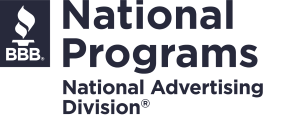
New York, NY – February 15, 2023 – In a challenge brought by the Institute for Agriculture and Trade Policy (IATP), a not-for-profit organization with the stated mission of working for fair and sustainable food and farm systems, the National Advertising Division (NAD) of BBB National Programs recommended that JBS USA Holdings, Inc., discontinue claims relating to its goal of achieving “net zero” emissions by 2040.
JBS is the second-largest food company and the largest animal protein producer in the world, with products that include boxed beef, ground beef, fresh pork, bacon, poultry, lamb, seafood, meat-based snack foods, and plant-based protein.
Aspirational environmental benefit claims create reasonable expectations on the part of consumers and, as a result, they require substantiation. When aspirational claims are tied to measurable outcomes an advertiser must be able to demonstrate that its goals and aspirations are not merely illusory and to provide evidence of the steps it is taking to reach its stated goal.
The challenged claims include:
- “JBS is committing to be net zero by 2040”;
- “Global Commitment to Achieve Net-Zero Greenhouse Gas Emissions by 2040”;
- “Bacon, chicken wings and steak with net zero emissions. It’s possible;” and
- “Leading change across the food industry and achieving our goal of net zero by 2040 will be a challenge. Anything less is not an option.”
NAD determined that JBS’ “net zero” claims reasonably create consumer expectations that the advertiser’s efforts are providing environmental benefits, specifically “net zero” emissions by 2040 a measurable outcome. Net-Zero is a recognized standard that guides companies in defining and establishing short and long-term science-based greenhouse gas emission reduction goals aligned with the legally binding 2015 Paris Agreement.
JBS provided evidence of a significant preliminary investment toward reducing emissions by 2040, including steps towards each of the stated “net zero” commitments, however, NAD concluded that the record did not support the broad message conveyed that JBS has a plan that it is implementing today to achieve net zero operational impact by 2040. Therefore, NAD recommended that JBS discontinue each of the challenged “net zero” claims.
NAD noted that nothing in its decision precludes JBS from making narrower truthful and not misleading claims regarding its efforts at researching potential methods for reducing emissions and any efforts it is undertaking to reduce emissions.
Further, regarding the claim “the SBTi recognized the Net Zero Commitment of JBS,” NAD found that the record demonstrates JBS’ notable, but preliminary efforts to establish SBTi-approved science-based greenhouse gas emission targets, but not an approved strategy to allow it to achieve net-zero climate impact by 2040. Therefore, NAD recommended that the claim be discontinued, but noted that nothing in its decision precludes JBS from making narrower truthful and not misleading claims regarding the steps it is taking to align its activities with SBTi criteria and its engagement with the SBTi process.
During the proceeding, JBS voluntarily permanently discontinued one challenged “net zero” claim, therefore, NAD did not review this claim on the merits.
In its advertiser statement, JBS stated that it “will appeal NAD’s decision” based on its disagreement that “the challenged aspirational claims communicate a message that it has a detailed plan in place today to achieve net-zero by 2040—17 years from now” and JBS’ belief that its claim are substantiated by “the foundational work” it has done to date.
Appeals of NAD decisions are made to the National Advertising Review Board (NARB), the appellate-level truth-in-advertising body of BBB National Programs.
All BBB National Programs case decision summaries can be found in the case decision library. For the full text of NAD, NARB, and CARU decisions, subscribe to the online archive.
About BBB National Programs: BBB National Programs, a non-profit organization, is the home of U.S. independent industry self-regulation, currently operating more than a dozen globally recognized programs that have been helping enhance consumer trust in business for more than 50 years. These programs provide third-party accountability and dispute resolution services that address existing and emerging industry issues, create a fairer playing field for businesses, and a better experience for consumers. BBB National Programs continues to evolve its work and grow its impact by providing business guidance and fostering best practices in arenas such as advertising, child-and-teen-directed marketing, data privacy, dispute resolution, automobile warranty, technology, and emerging areas. To learn more, visit bbbprograms.org.
About the National Advertising Division: The National Advertising Division (NAD) of BBB National Programs provides independent self-regulation and dispute resolution services, guiding the truthfulness of advertising across the U.S. NAD reviews national advertising in all media and its decisions set consistent standards for advertising truth and accuracy, delivering meaningful protection to consumers and leveling the playing field for business.
Contact Information
Name: Abby Hills
Email: press@bbbnp.org
Job Title: Director of Communications
National Advertising Review Board Recommends Genexa Discontinue or Modify Pediatrician Preference and Ingredient Claims for “Kids’ Pain & Fever” Medicine
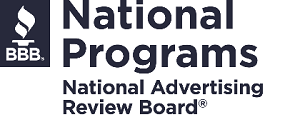
National Advertising Review Board Recommends Genexa Discontinue or Modify Pediatrician Preference and Ingredient Claims for “Kids’ Pain & Fever” Medicine
New York, NY – February 14, 2023 – A panel of the National Advertising Review Board (NARB), the appellate advertising law body of BBB National Programs, recommended that Genexa Inc. discontinue certain pediatrician preference claims and ingredient claims for its acetaminophen-based children’s analgesic sold over the counter as “Kids’ Pain & Fever.”
The advertising at issue had been challenged before the National Advertising Division (NAD) by Johnson & Johnson Consumer, Inc., McNeil Healthcare Division. Following NAD’s decision (Case No. 7108), Genexa appealed NAD’s findings and recommendations.
While the active ingredient in both parties’ medications (acetaminophen) is the same, Genexa has disseminated superiority claims for Kids’ Pain & Fever compared to competing brands based on asserted advantages attributable to its product’s inactive ingredients.
Pediatrician Preference Claims
Johnson & Johnson challenged the following pediatrician preference claims:
- “Pediatricians prefer Genexa’s Kids’ Pain & Fever over Children’s Tylenol Pain + Fever liquid products for their own children based upon comparing the ingredients”; and
- “The doctors have spoken.”
In agreement with NAD, the NARB panel concluded that one message conveyed by the “pediatricians prefer” claim is that pediatricians prefer the Genexa product for use by their own children. Further, the NARB panel concluded that the “doctors have spoken” claim communicates to reasonable consumers that pediatricians prefer Genexa’s medication to competitive products on the market, including recommending the Genexa medicine in their practice.
Finding no support for either of these messages, the NARB panel recommended that the claims be discontinued or modified to make clear that the surveyed pediatricians expressed a preference only as to “ingredients,” and avoid stating or implying that pediatricians prefer or use the advertiser’s product over the challenger’s product in their practices or for their own children.
Ingredient Claims
In the underlying decision, NAD found that the challenged claims convey the message that there are inactive ingredients in competitors’ products, including Johnson & Johnson’s, that are dangerous and unsafe. NAD recommended that these claims be discontinued for lack of support.
The NARB panel affirmed NAD’s conclusions and recommendations concerning the challenged ingredient claims. Among the claims the panel recommended be discontinued was the claim “PARABENS is stuff you’ll find in ALL PURPOSE CLEANER. And, for some reason, in kids’ fever medicine.”
The NARB panel also recommended that the advertiser discontinue the “MADE WITH REAL INGREDIENTS” claim in the context presented in the now-discontinued challenged video advertisement and avoid conveying the message that competing products with different inactive ingredients are generally unsafe, harmful, or dangerous. The panel noted that nothing in its decision prevents the advertiser from highlighting the “real ingredients” in its product, provided, that the advertising does not otherwise convey the message that competing products contain inactive ingredients that are generally unsafe, harmful, or dangerous.
Genexa stated that it “is deeply troubled by the implications of NARB’s decision on both Genexa and the industry more broadly, but Genexa will comply with NARB’s recommendations.”
All BBB National Programs case decision summaries can be found in the case decision library. For the full text of NAD, NARB, and CARU decisions, subscribe to the online archive.
About BBB National Programs: BBB National Programs, a non-profit organization, is the home of U.S. independent industry self-regulation, currently operating more than a dozen globally recognized programs that have been helping enhance consumer trust in business for more than 50 years. These programs provide third-party accountability and dispute resolution services that address existing and emerging industry issues, create a fairer playing field for businesses, and a better experience for consumers. BBB National Programs continues to evolve its work and grow its impact by providing business guidance and fostering best practices in arenas such as advertising, child-and-teen-directed marketing, data privacy, dispute resolution, automobile warranty, technology, and emerging areas. To learn more, visit bbbprograms.org.
About the National Advertising Review Board (NARB): The National Advertising Review Board (NARB) is the appellate body for BBB National Programs’ advertising self-regulatory programs. NARB’s panel members include 85 distinguished volunteer professionals from the national advertising industry, agencies, and public members, such as academics and former members of the public sector. NARB serves as a layer of independent industry peer review that helps engender trust and compliance in NAD, CARU, and DSSRC matters.
Contact Information
Name: Abby Hills
Email: press@bbbnp.org
Job Title: Director of Communications
LexisNexis Canada Launches the Lexis+ Canada Legal News Hub and Rebrands The Lawyer’s Daily as Law360 Canada

Powered by Law360 Canada, the Legal News Hub delivers industry-leading news directly into the Lexis+ workflow to keep Canadian legal professionals better informed
Toronto – February 8, 2023 – LexisNexis®Legal & Professional, a leading global provider of legal information and analytics, simultaneously announced the launch of the Lexis+™Canada Legal News Hub and the rebranding of their Canadian news service, The Lawyer’s Daily, as Law360™Canada. The Lexis+ Canada Legal News Hub will ensure legal professionals keep up to date on the latest news, trends and changes that impact the business and practice of law – intuitively accessible within their established Lexis+ workflow.
Located within the Lexis+ Canada Experience Dock, the Legal News Hub adds current awareness functionality to Lexis+, enabling users to stay informed on breaking news and developments that impact the legal profession. All Lexis+ Canada users can browse news headlines and summaries from Law360 Canada, and those with an existing legal news subscription can drill deeper into the news stories and content from within the familiar Lexis+ environment.
“With the launch of the Legal News Hub, LexisNexis has extended the functionality of the Lexis+ ecosystem,” said Sean Fitzpatrick, CEO, LexisNexis North America, UK and Ireland. “Bringing the latest stories from our news service into Lexis+ Canada allows legal professionals to stay current on the news that matters to them, and seamlessly link to other content within the Lexis+ ecosystem.”
Powered by award-winning journalism and content from Law360 Canada, the Lexis+ Legal News Hub experience includes the following sections:
• Top Stories: A continuously updated, editorially curated list of the most important recent legal headlines and summaries delivered via an image-rich, visually stimulating interface.
• Trending Articles: Stories trending on Law360 Canada will be highlighted on the main page, giving users quick insights into what their industry peers consider relevant.
• Practice Areas: All current content from the 14 practice areas and legal topics covered.
• Integrated Search: Users can search current news from Law360 Canada within Legal News Hub then expand their search to all news and legal news sources available on the Lexis+ Legal Research tab with a single click.
Future iterations of the Lexis+ Canada Legal News Hub will bring new features, additional news and practice-specific content, and personalization tools to maximize the reader experience.
“Keeping current on the latest developments in the law, the legal industry or a particular practice is a natural part of every legal professional’s daily workflow and is essential for providing timely and informative client counsel and effective business development initiatives,” said Eric Wright, CEO LexisNexis Canada. “Law360 provides legal practitioners with the single best source for all of their legal news needs, and Lexis+ delivers it when, where, and how they need it most.”
With the rebrand, Law360 Canada becomes the third edition of the global legal news authority, joining the United States and United Kingdom editions in reaching a global audience of more than 2.5 million readers daily. With nearly 40 years of prestige publishing experience, the new Law360 Canada will serve as a local platform to report on the country’s critical legal news and coverage as it happens across 14 practice areas.
“The decision to rebrand The Lawyer’s Daily as Law360 Canada reflects our commitment to expand our premium legal news offering world-wide while still maintaining the local, on-the-ground reporting and expert analysis that our readers in each market expect,” said Rachel Travers, Vice President and General Manager, Law360. “Law360 Canada strengthens our position in legal news in North America and serves as an exciting addition to our expanding global network.”
Existing The Lawyer’s Daily subscribers will continue to receive uninterrupted access to the same trusted content they have relied on for nearly 40 years, either at www.law360.ca or via the Lexis+ Canada Legal News Hub.
For more information about Law360, Lexis+ Canada and the Legal News Hub, please visit https://www.lexisnexis.ca/en-ca/products/lexis-plus/legal-news-hub.page.
Media Contact
Name: Collin Smith
Company: LexisNexis Canada
Job Title: Marketing Director
Email: Collin.Smith@lexisnexis.ca
Safer Internet Day/Month 2023

- Want to talk about it? Making space for conversations about life online
- Emoji charades – use the power of emojis to help make the internet a more positive place
- Educators and parents – Educational resources ready for download
As from 7 February 2023, the British Council in MEA (Middle East and Africa) will be celebrating Safer Internet Day and supporting this year’s theme “Want to talk about it? Making space for conversations about life online” which aims to promote safe, responsible and positive use of internet technology.
Safer Internet Day is celebrated globally in February each year to inspire a conversation about using technology responsibly, respectfully, critically, and creatively.
To celebrate the event and raise awareness on how to stay safe on the internet, British Council is sharing different resources with schools and teachers, delivering lessons on the topic, and promoting a regional competition, along with other exciting activities through different channels.
To start with, whether you are a school, teacher, youth group, library, parents associations or wider, we are sharing a range of educational resources to help deliver sessions for Safer Internet Day, the following safety materials and information have been specifically designed to support educators in delivering the online safety messages.
Teachers at the British Council will be delivering lessons and activities for all age groups and levels they are teaching this term to raise awareness and start a conversation about internet safety, particularly with young people who may not understand how to stay safe when using the internet. The focus will be creating an online child-safe learning environment for children.
All students throughout the region have been also invited to take part an awareness campaign. Students need to submit videos where they will share tips on how to stay safe online in their own way.
Lastly, all social media users throughout the region can take part in the Emoji charades activity to help make the internet a more positive place. All what they need to do is to choose an emoji of their choice that reflects their personality online or even create their own, then they can post the image on their page with the hashtag:
#BCSaferInternetDay.
“People may do things online which they can’t or wouldn’t do in real life. At the same time, the internet doesn’t seem as dangerous as walking down a street in a dark, dangerous area. It’s important that parents give it the same attention, and that we all learn how to stay safe online, and that we manage the risks of online abuse in all our activities”. Explains Hana Adel, Regional Manager for the Safeguarding of Children and Vulnerable Adults in MENA at the British Council.
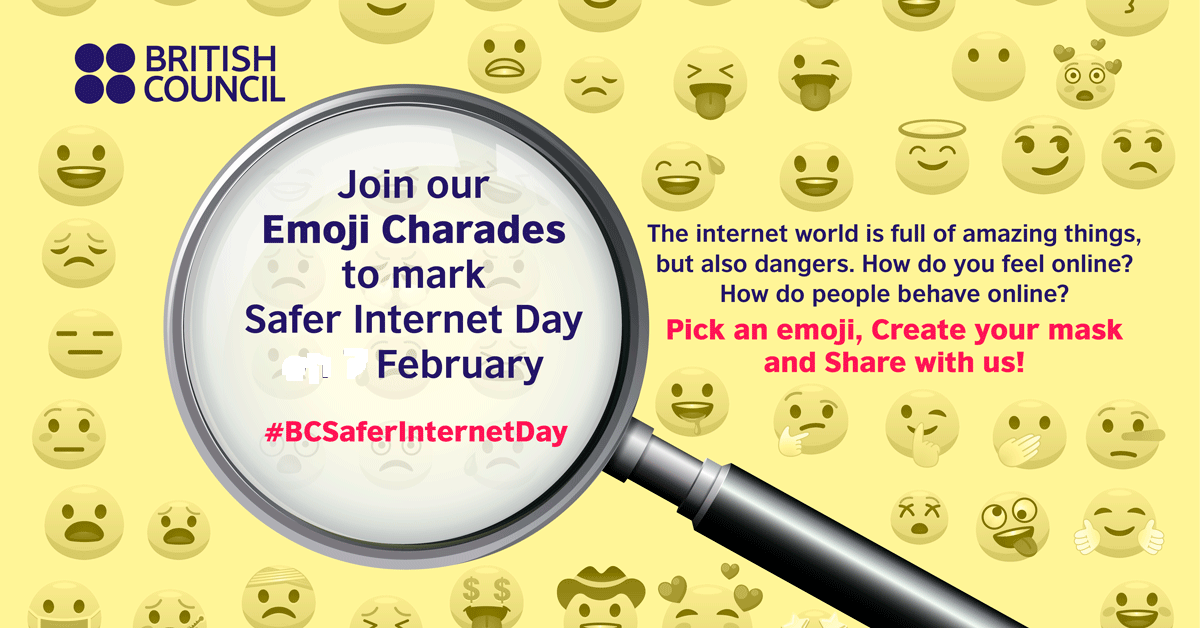
About the British Council
The British Council is the UK’s international organisation for cultural relations and educational opportunities. We build connections, understanding and trust between people in the UK and other countries through arts and culture, education and the English language. In 2019-2020 we reached over 75 million people directly and 758 million people overall including online, broadcasts and publications. Founded in 1934 we are a UK charity governed by Royal Charter and a UK public body. We receive a 14.5 per cent core funding grant from the UK government. www.britishcouncil.org
Contact Information
Name: Lamia El Idrissi
Email: lamia.elidrissi@britishcouncil.org
Job Title: Senior Communications Manager
